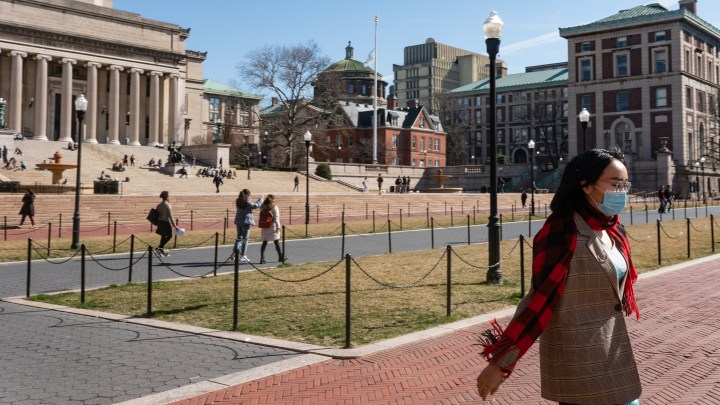
Gap year not on horizon for students as most plan to head back to college
Gap year not on horizon for students as most plan to head back to college

We’re heading into August, which is when many college students will be heading back to school.
At least remotely for some of them, who will do most of their learning online. That’s to keep COVID-19 from spreading on campuses and through communities.
But a lot of schools are reopening physically and in person, with at least some amount of face-to-face time — or “masked-and-physically-distanced-face-to-face time” — planned in the classroom. In many cases it’ll be a hybrid model, with some online and some in-person instruction.
A big question has been whether students will be willing to go back to school in large numbers in the midst of a pandemic that’s still raging.
When colleges shut down in March and sent students home to finish the semester, schools worried about whether their students would return in the fall. Especially with all the uncertainty about COVID-19 and whether instruction would be on campus or online.
Sallie Mae, the giant private college lender, surveyed families in the spring, said Senior VP Martha Holler.
“And what we found was there’s really no gap year here,” she said.
Only 2% of students plan to take time off from their education.
“The overwhelming majority, 78%, are planning on returning to their current school,” Holler said. “Another 5% said, yeah, I’m going to go back, but I’m going to go to a different school.”
Fitch Ratings has also found most students want to stay in school and be at school. Analyst Emily Wadhwani said administrators are trying to calm families’ fears.
“They’re working with health professionals, they have planning teams in place, protocols that will ideally keep the students and the staff and faculty safe — as best they can,” she said.
And it’s not like the choice to take time off would be an easy one, said Beth Akers, higher education expert and senior fellow at the Manhattan Institute.
“To be in a position of taking a gap year requires a lot of financial privilege,” Akers said. “A lot of students who are in college are older. They may have children, and they may be relying on financial aid to pay their household expenses.”
Many schools are still finalizing their fall plans. And Robert Franek, editor-in-chief at the Princeton Review, said while the 100% online model may be the right thing for some schools due to the pandemic, “students still want to be face-to-face, in class, or some hybrid model.”
And he said some students are still delaying their decision, waiting to find out if they’ll be living and learning on campus or at home with their parents.
There’s a lot happening in the world. Through it all, Marketplace is here for you.
You rely on Marketplace to break down the world’s events and tell you how it affects you in a fact-based, approachable way. We rely on your financial support to keep making that possible.
Your donation today powers the independent journalism that you rely on. For just $5/month, you can help sustain Marketplace so we can keep reporting on the things that matter to you.












